Canadian Naval Review is published by the Brian Mulroney Institute of Government at St. Francis Xavier University. It is a professional journal examining a wide range of maritime security issues from a Canadian perspective. It focuses on strategic concepts, policies, historical perspectives, and operations of the Canadian Navy, plus oceans policy, marine affairs, and national security in general. This initiative brings together members of the Canadian defense and academic communities and is a component of the Brian Mulroney Institute's focus on Maritime Security.
Canadian Naval Review has three primary objectives:
- provide a public forum for the discussion of the maritime dimensions of Canada’s national security;
- provide a public forum for the discussion of Canada’s naval and maritime policies; and
- provide a source for the public examination of Canadian naval and maritime history and for the development of lessons learned.
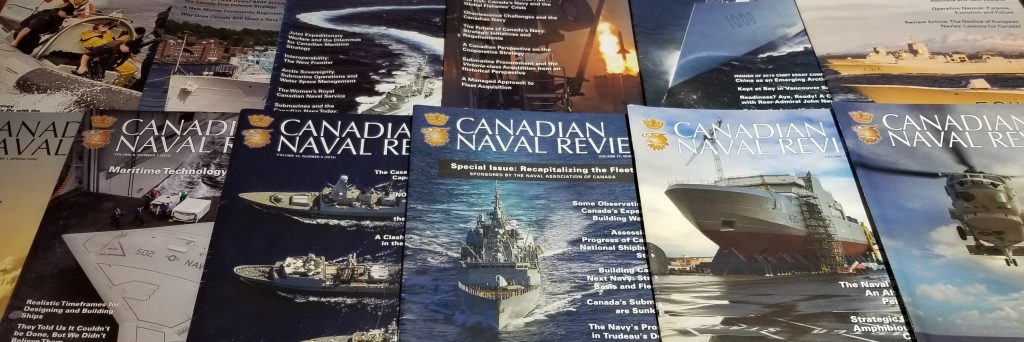
Articles, commentaries and opinion pieces are invited from the widest spectrum for the purpose of informing, stimulating debate and generally challenging readers. The opinions expressed by the authors do not necessarily reflect the opinions of the Editor, Editorial Board, Brian Mulroney Institute, the Department of National Defence, or the Royal Canadian Navy. (Please review our Submissions guidelines and Privacy policy, terms and conditions)
Canadian Naval Review Conflict of Interest Policy
This conflict of interest policy recognizes that the policy of Canadian Naval Review to solicit expertise from a wide variety of individuals active in academia, maritime security agencies and industry may, from time to time, create situations in which personal or private interests of Editorial Board members and/or associated CNR personnel [1] converge with the work of the Board. This policy therefore provides guidelines to deal honourably with such conflicts when and if they should arise.
‘Conflict of interest’ is defined here as any situation in which a Board member or person associated with CNR, or a member of their immediate or extended families, might have a personal or private interest that might be construed as being in real, potential, or apparent conflict with the interests of CNR and/or might be sufficient to influence the objective exercise of duties. These interests may include any factors that a reasonable person might think would unduly influence the advice and judgement of a Board member or associated personnel.
Board members and associated personnel are expected to maintain the highest standards of personal and professional integrity and to protect the interests of CNR. Personal gain shall not in any way conflict with duty to the Board. Any information, materials or data acquired through briefings, discussions or other CNR activities may not be used by CNR personnel to acquire competitive, professional, or financial advantage, except where such information, material or data are readily available within the public domain.
Board members and personnel associated with CNR are responsible for declaring any potential or actual conflicts of interest.
Board members and CNR-associated personnel are in agreement with this policy and agree to divulge any real, potential or perceived conflict of interest and to remove themselves from a process or decision in which they may have conflict. Should someone fail to disclose a conflict of interest involving especially direct financial gain, the remedy will be immediate dismissal from the Board or duties with CNR.
[1] In this case, ‘associated personnel/personnel associated with CNR’ refers to the Editor, Assistant Editor and production personnel.
Canadian Naval Review Editor, Assistant Editor, and Photo Editor
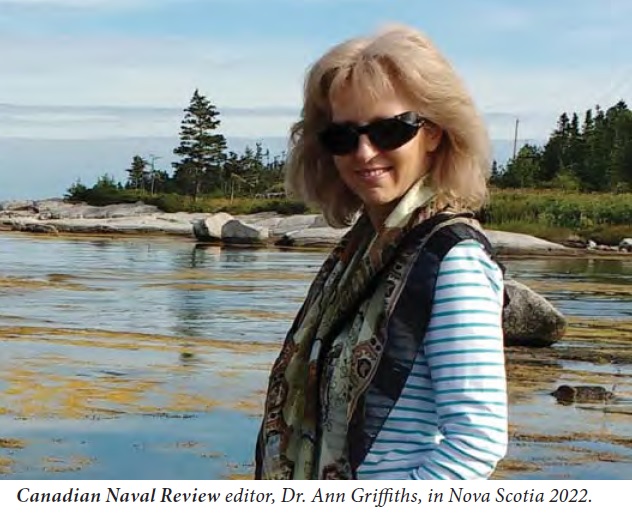
Dr. Ann L. Griffiths
Dr. Ann Griffiths is the Editor of Canadian Naval Review. She received her BA (Hons) from Queen’s University, her MA from the University of Calgary and her PhD from Dalhousie University. For many years she taught part-time in the Department of Political Science at Dalhousie University and was Resident Fellow at the former Centre for Foreign Policy Studies at Dalhousie. In addition to her work with CNR, she has done consulting work for the Naval Affairs program of the Naval Association of Canada. Her research and teaching interests include security and defence, asymmetric warfare, maritime transportation systems, human rights, peacebuilding, and democratization.
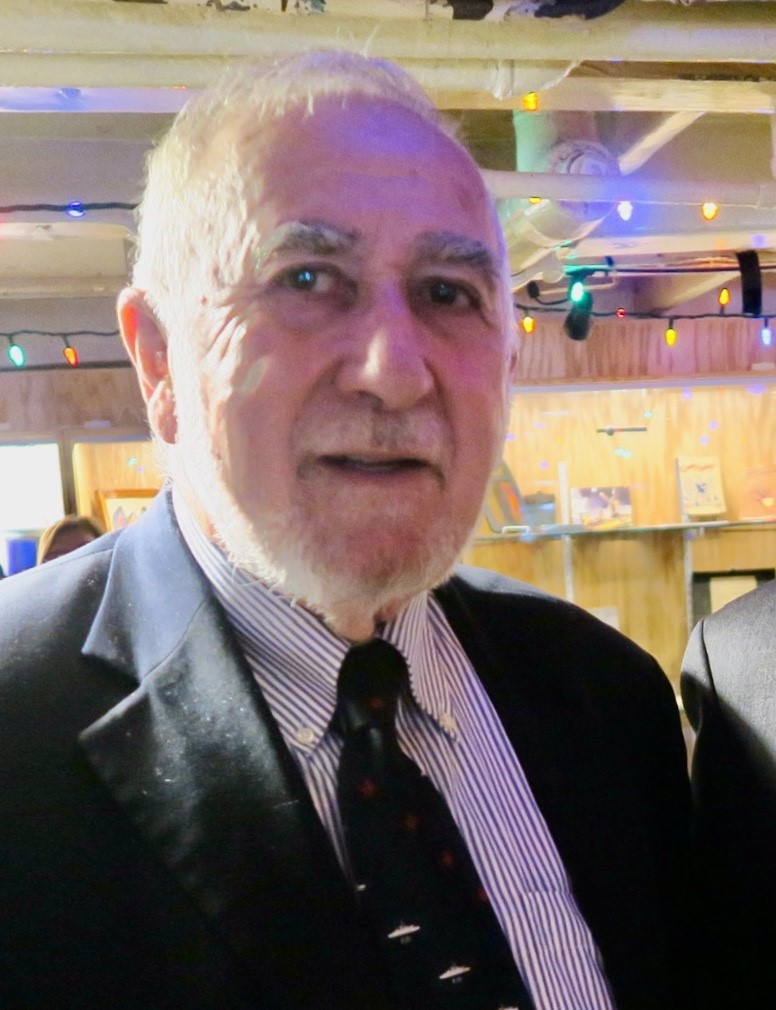
Douglas S. Thomas
Doug Thomas is the Assistant Editor of the Canadian Naval Review

Dr. Timothy Hiu-Tung Choi, Ph.D.
Timothy Choi is the Photo Editor of the Canadian Naval Review and is currently a public servant in the Canadian government. He received his Ph.D. from the University of Calgary's Centre for Military, Security and Strategic Studies, where his dissertation is entitled, “Controlling the Northern Seas: The Influence of Exclusive Economic Zones on the Development of Norwegian, Danish, and Canadian Maritime Forces ” It asks how the Danish, Norwegian, and Canadian maritime forces developed in response to the adoption and legitimization of the 200 nautical mile exclusive economic zone, and whether smaller forces have generalizable differences in such responses compared to larger ones. This has seen him sailing with Danish and Norwegian patrol vessels to gain deeper insights into the tactical level of peacetime naval activities. He is a former Smith Richardson Predoctoral Fellow at Yale University's International Security Studies, where he worked with Professor Paul Kennedy, and was also a Research Fellow at Dalhousie University's Centre for the Study of Security and Development. He has been a Fellow at the Canadian Global Affairs Institute and was a consultant for the British American Security Information Council.
Canadian Naval Review Editorial Board

Dr. Andrea Charron, Ph.D.
Dr. Andrea Charron holds a PhD from the Royal Military College of Canada (Department of War Studies). She obtained a Masters in International Relations from Webster University, Leiden, The Netherlands, a Master's of Public Administration from Dalhousie University and a Bachelor of Science (Honours) from Queen's University. Dr. Charron worked for various federal departments including the Privy Council Office in the Security and Intelligence Secretariat. She completed her post doctorate at Carleton's Norman Paterson School of International Affairs and is now Associate Professor and Director of the Centre for Defence and Security Studies (CDSS) at the University of Manitoba. Dr. Charron has written extensively on the Arctic, NORAD, Canadian Defence Policy and the Security Council. She is asked regularly to provide guest lectures at Canadian Forces College and to provide testimony to Senate and House of Commons' committees.

Rob Huebert, Ph.D.
Rob Huebert is an associate professor in the Department of Political Science at the University of Calgary. He also served as the associate director of the Centre for Military and Strategic Studies. He was appointed as a member to the Canadian Polar Commission (now renamed Canada Polar Knowledge) for a term lasting from 2010 to 2015. He is also a research fellow with the Canadian Global Affairs Institute.Dr. Huebert has taught at Memorial University, Dalhousie University, and the University of Manitoba. He publishes on the issue of Canadian Arctic Security, Maritime Security, and Canadian Defence. His work has appeared in International Journal; Canadian Foreign Policy; Isuma- Canadian Journal of Policy Research and Canadian Military Journal. He was co-editor of Commercial Satellite Imagery and United Nations Peacekeeping and Breaking Ice: Canadian Integrated Ocean Management in the Canadian North. He also comments on Canadian security and Arctic issues in both the Canadian and international media.

Dr. Thomas Hughes, Ph.D.
Dr. Thomas Hughes is the McKenna School Post-Doctoral Fellow at Mount Allison University, and the Deputy Director of the Centre for Defence and Security Studies at the University of Manitoba. He will be taking a temporary position as Assistant Professor at Mount Allison University. His research focuses on North American and Arctic defence, NATO, and threat perception. Dr. Hughes co-edited the 2018 volume North American Strategic Defense in the 21st Century and has published research on Arctic defence and trust in international relations, including a chapter in International Competition in the High North (published by the U.S. Army War College) and articles in the Journal of Transatlantic Studies and The Journal of Trust Research. Dr. Hughes is also a Network Co-ordinator for the North American and Arctic Defence and Security Network and has contributed to events across the defence and security community in Canada, including presenting at the Kingston Conference of International Security in 2022. He completed his award-winning PhD, The Art of War Games, which explored confidence-building measures and the political effects of military exercises, at Queen’s University in 2021.

Dr. Adam Lajeunesse, Ph.D.
Adam Lajeunesse, PhD, is the Irving Shipbuilding Chair in Canadian Arctic Marine Security Policy and an Assistant Professor at the Brian Mulroney Institute of Government. His research centres on issues of sovereignty and security in the Canadian North, with a particular focus on the history of the Canadian Armed Forces in the region, Canadian-American relations and the status of the Northwest Passage, and the evolution of Canadian Arctic maritime policy. He is the author of Lock, Stock, and Icebergs: The History of Canada’s Arctic Waters (2016), an award winning political history of the Northwest Passage. He is also the co-author China’s Arctic Ambitions and What They Mean for Canada (2017) and the co-editor of Canadian Arctic Operations, 1941–2015: Lessons Learned, Lost, and Relearned (2017).

Dr. Danford W. Middlemiss, Ph.D.
Danford W. Middlemiss, was educated at the University of Toronto (BA: 1967; MA: 1968; PhD: 1976). From 1973 to 1976 he was engaged in Canadian maritime enforcement studies with the Institute of International Relations at the University of British Columbia. From 1976 to 1981 he was Director of the Centre for Strategic Studies at the University of Alberta. Since 1981, he has been with the Department of Political Science, Dalhousie University and attained the rank of Full Professor in 1993. From 1987 to 1993, and again from 2005 to 2008 he served as the Director of the Centre for Foreign Policy Studies at Dalhousie University.
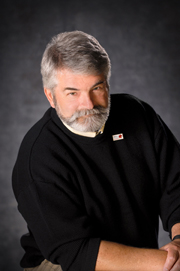
Dr. Marc Milner, Ph.D.
Dr. Marc Milner is best known for his books on the Canadian navy and on the Battle of the Atlantic, starting with North Atlantic Run in 1985, and most recently Battle of the Atlantic (2003 & 2005) which won the CP Stacey Prize. He has also edited several volumes, has published widely in scholarly journals, and writes a regular column on naval history for Legion Magazine.
From 1983 to 1986 Milner was an historian with the Directorate of History, NDHQ, Ottawa, where he worked on volume II of the RCAF's official History, and the new official history of the Royal Canadian Navy. In 1986, Milner joined the History Department at UNB and from then until 2005 was Director of UNB's Military and Strategic Studies Programme. He has served as Chairman of the Canadian Military Colleges Advisory Board, Vice Chair of the Board of Visitors of the Canadian Forces College, has edited the journal Canadian Military History, seen over fifty graduate students to completion, and conducted study tours of European battlefields on behalf of the Canadian Battlefields Foundation and the Canadian Armed Forces. He is currently on the Board of Governors of the Royal Military College of Canada, and was Director of The Gregg Centre from 2006 to 2019.
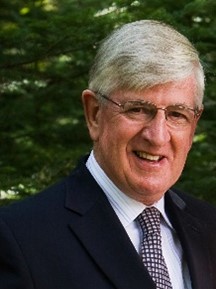
David Morse
David Morse graduated from the Royal Military College of Canada in 1971. He served in various sea going appointments commanding HMCS SKEENA, the Canadian Fleet Atlantic and the NATO Standing Naval Force Atlantic. Ashore he served in a variety of staff appointments including Director of Naval Requirements, Commandant of the Royal Military College and Commander of the Canadian Defence Academy. He is a graduate of the Canadian Forces Command and Staff College and the National Defence College. He retired from the Canadian Armed Forces in August 2004.

Colonel (Ret'd) John Orr
Colonel Orr joined the Royal Canadian Navy in September 1963 and graduated in 1967 from the Royal Military College of Canada. Selected for aircrew duties, he completed five operational tours on the Sea King helicopter. Colonel Orr attended the Canadian Forces Command and Staff College and has held a variety of command and staff appointments in Canada, NATO and the Middle East. He retired from the Canadian Armed Forces in September 2000 and since then has volunteered as a researcher at the Shearwater Aviation Museum where he has concentrated his efforts on documenting the history of the Canadian Sea King helicopter as well as the history of the air station at Shearwater, Nova Scotia.
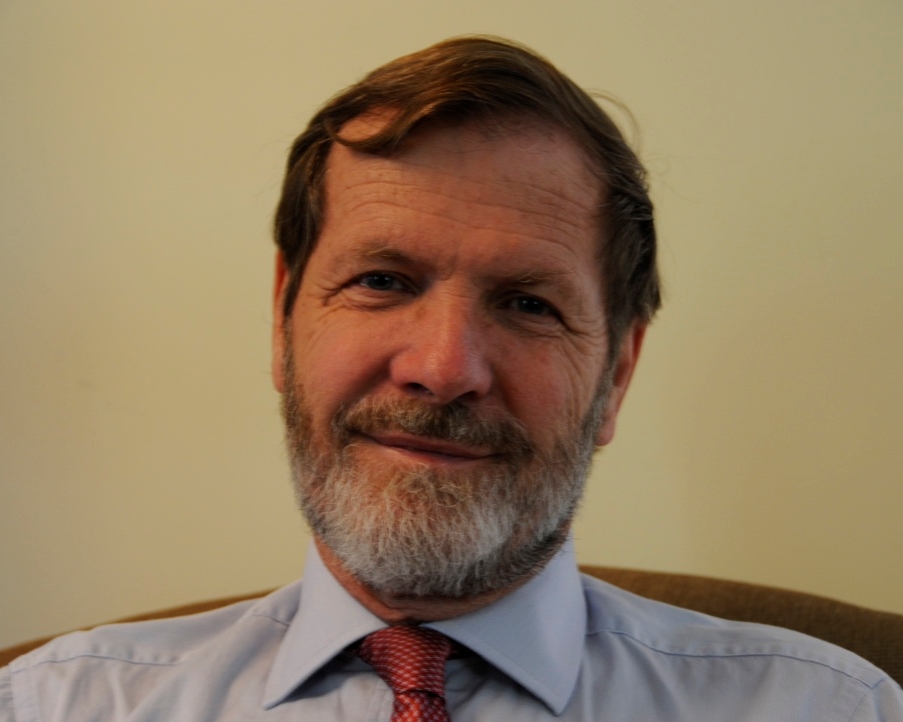
Mark Sloan
After graduating from Nottingham University in the UK, Sloan served for 34 years as a Warfare Officer in the UK’s Royal Navy. His varied appointments included command of two frigates, HM Ships LANCASTER (1993-1995) and CAMPBELTOWN (2001-2003), and a range of staff jobs, his final appointment being Director Maritime at the Development, Concepts and Doctrine Centre in the Ministry of Defence.
After leaving the Royal Navy in 2009, Sloan moved to Canada and was invited to become a Research Fellow at the Centre for Foreign Policy Studies, now the Centre for the Study of Security and Development. While furthering his research interests in maritime security and the Arctic, he was also the lead researcher and author for the Operational Responses theme of the Dalhousie Marine Affairs Program’s study into a comprehensive approach to countering piracy.
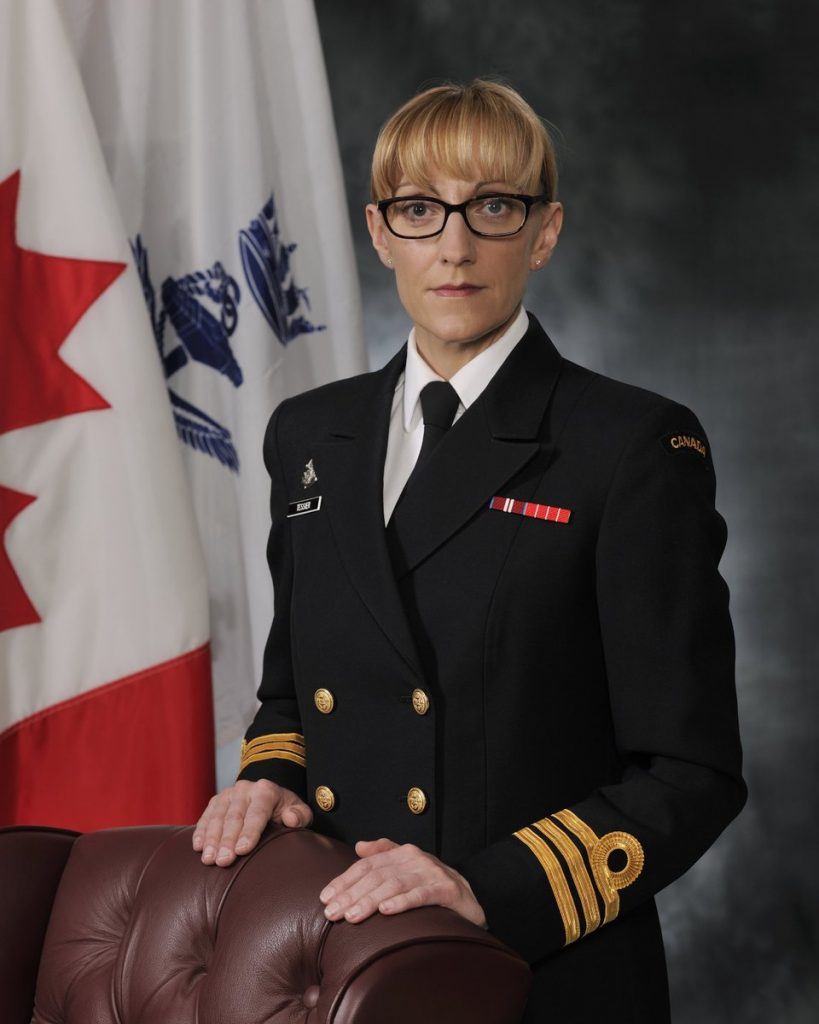
Commander (Ret'd) Michele Tessier
Commander Michele Tessier joined the Naval Reserve at Her Majesty’s Canadian Ship (HMCS) Cabot in St. John’s following her undergraduate studies at Memorial University in 1996. She has had command tours at sea from 2010 to 2013 with HMCS Nanaimo, and ashore in HMCS Griffon, a Naval Reserve Division in Thunder Bay, Ont. She also served at Canadian Fleet (Pacific) in Victoria as Commander Coastal Forces (Pacific), and was the first commanding officer of the Arctic and Offshore Patrol Ship HMCS Margaret Brooke in 2018.

Kate E. Todd
Kate E. Todd is a federal public servant and Naval Warfare Officer in the Royal Canadian Naval reserves. She is also a fellow with Arctic360, the Canadian Global Affairs Institute and the North American and Arctic Defence and Security Network. Kate received her Master of Public Policy from the University of Toronto’s Munk School of Global Affairs and Public Policy in 2024 and Bachelor of Arts with Honours specializing in political science and minoring in public law from the University of Toronto in 2022. Kate’s research and publications focus on maritime, Arctic, economic and national defence and security as well as northern economic development through infrastructure and natural resource development.
